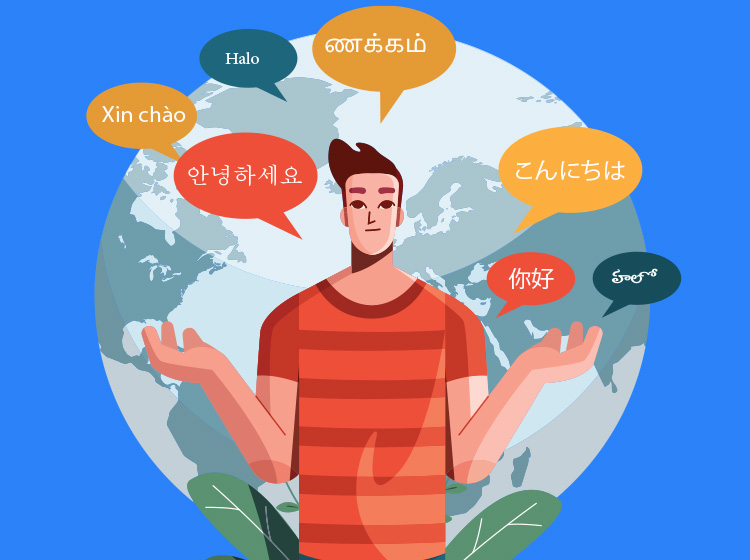Asia is undergoing a digital transformation at a scale the world has never seen. With billions of connected consumers and an insatiable demand for fresh, localized content, the race is on for brands to master AI Marketing without losing touch with the very people they seek to engage. This is where cultural sensitivity stops being a “nice-to-have” and becomes mission-critical.
An Effective AI Marketing Service isn’t just about churning out words, images, or videos faster than a human could—it’s about doing so with an awareness of the traditions, languages, and values that define the region. Whether it’s tailoring a product description for the Chinese market, creating a relatable Instagram reel for Indonesia, or crafting a thought-leadership piece for Singapore’s fintech sector, AI must respect the cultural code.
Services like iSmart AI Marketing Service are leading the charge, using advanced machine learning combined with region-specific datasets to create campaigns that connect rather than clash. In a continent where a misplaced symbol or mistranslated phrase can turn a marketing push into a PR disaster, the smart money is on AI that understands before it speaks.

Understanding Asia’s Cultural and Linguistic Diversity
If you think Asia is a single market, you’re already behind. From the bustling streets of Tokyo to the rural communities of India, cultural norms differ wildly—not just between countries, but within them. Language is the first hurdle. In Asia, it’s not just about translating from English to another language—it’s about speaking in a dialect, tone, and style that resonates.
For AI Marketing to succeed here, it must learn to handle more than just multilingual capability. It must embrace the subtleties of honorifics in Japanese, understand the emotional weight of colors in Chinese branding, and navigate the sensitivities of religious observances in Muslim-majority markets.
An Effective AI Marketing Service will feed its models with region-specific content, not just global datasets, so that it understands why a slogan that works in Bangkok might backfire in Seoul. iSmart AI Marketing Service goes a step further, integrating sentiment analysis and cultural markers into every stage of content generation. The result? Messages that sound local, not imported.
In a land of countless festivals, customs, and values, there’s no “one-size-fits-all.” Instead, the winning formula is adaptability—an AI that doesn’t just process data but truly listens to the culture it serves.

The Intersection of AI, Data, and Culture
Data is the lifeblood of AI—but in Asia, not all data is created equal. AI models trained on Western-centric datasets often stumble when confronted with local idioms, humor, or historical references. This is where the real work begins for AI Marketing in Asia: curating datasets that reflect the reality on the ground.
An Effective AI Marketing Service knows that feeding the algorithm with raw numbers isn’t enough. It’s about blending hard analytics with cultural intelligence. That means training AI not just on product reviews or purchase histories, but also on folk stories, news coverage, and regional media patterns.
iSmart AI Marketing Service understands that every piece of data is a cultural artifact. A single emoji can carry entirely different meanings across Asian markets. A trending hashtag in one country can be politically sensitive in another. Without the right contextual guardrails, AI can generate content that alienates instead of attracts.
The goal is a symbiotic relationship—AI that processes vast quantities of structured and unstructured data, but filters every output through the lens of cultural relevance. In Asia, the best AI doesn’t just crunch numbers—it tells stories that belong.

Case Studies: Wins and Warnings in AI Content Creation
In 2023, a Japanese cosmetics brand used an Effective AI Marketing Service to launch a product campaign that seamlessly blended local pop culture references with cutting-edge product visuals. Sales skyrocketed, proving that when AI speaks the customer’s language—literally and figuratively—it wins hearts and wallets.
On the flip side, a global beverage company learned the hard way when their AI-generated slogan, intended for the Thai market, accidentally used a phrase that locals interpreted as offensive. The backlash was swift, and the campaign was pulled within days. The lesson? Without cultural safeguards, AI can turn into a liability.
iSmart AI Marketing Service has documented multiple success stories where brands avoided such pitfalls by implementing human-in-the-loop reviews and culturally aware datasets. From Bollywood-inspired ad scripts to K-pop-themed social media blitzes, the secret has been a blend of creative AI outputs with human cultural intuition.
These examples show that AI in Asia can be a powerful tool—but only for those willing to invest in training it for the terrain. Speed without sensitivity is a recipe for disaster.

Best Practices for Culturally Sensitive AI Content
If you want your AI Marketing strategy to thrive in Asia, follow these golden rules:
- Start with Local Data – Train AI models on locally sourced content, not just global datasets.
- Respect Language Nuances – Pay attention to dialects, honorifics, and idiomatic expressions.
- Adapt Visual Elements – Colors, symbols, and imagery carry different meanings across markets.
- Implement Human Oversight – Even the best Effective AI Marketing Service benefits from final human review.
- Test Before Scaling – Pilot campaigns in smaller segments before a full rollout.
iSmart AI Marketing Service excels by embedding these principles into its workflow. It doesn’t just produce content—it produces culturally attuned content. That difference is what transforms campaigns from generic to unforgettable.
In Asia, the customer isn’t looking for a perfect translation—they’re looking for a brand that “gets” them. And that’s something AI can deliver, but only with the right inputs and oversight.

Ethical and Regulatory Considerations in Asia
AI content generation in Asia doesn’t happen in a vacuum. Many countries have strict laws around digital content, advertising, and data privacy. For instance, China’s cybersecurity regulations demand that AI-generated content comply with government standards. In Singapore, misleading claims can lead to hefty fines under consumer protection laws.
An Effective AI Marketing Service must navigate these legal frameworks with the same precision it uses for cultural adaptation. That means knowing not just what to say, but what not to say—and when to say nothing at all.
iSmart AI Marketing Service incorporates compliance checks into its AI workflows, ensuring that every piece of content aligns with local laws and ethical norms. This is crucial because in Asia, a misstep can mean not just lost sales, but legal action and reputational damage.
Beyond regulations, there’s the broader question of ethics. Should AI amplify certain narratives? Should it adapt content that contradicts universal human rights in order to “fit in” culturally? These aren’t just philosophical debates—they’re real decisions brands face every day. The wisest marketers treat ethics as part of the brand, not an afterthought.
Conclusion: Shaping the Future of AI Content in Asia
The future of AI Marketing in Asia isn’t just about speed, automation, or cost savings—it’s about relevance. The brands that will win are those that pair data-driven insights with deep cultural empathy.
An Effective AI Marketing Service like iSmart AI Marketing Service proves that AI can be both powerful and respectful, both efficient and human-centered. By grounding every algorithm in local reality, brands can avoid the traps of tone-deaf automation and instead produce content that feels personal, timely, and authentic.
Asia is too vast, too diverse, and too dynamic for lazy AI. The companies that succeed will be the ones whose AI learns the language of the heart—not just the language of the market.





